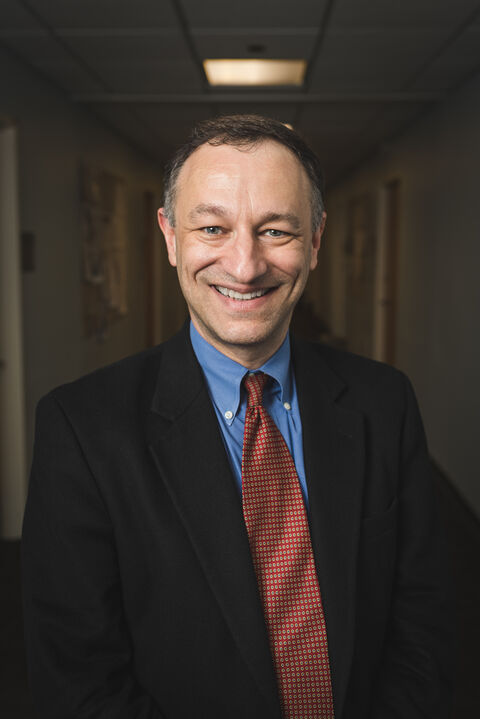Overview

David Meltzer,MD,PhD
Chief, Section of Hospital Medicine
David Meltzer, MD, PhD
Chief, Section of Hospital Medicine
University of Chicago Department of Medicine
Section Chief's Welcome
When the Section was founded, we focused solely on the care of patients using traditional academic general medicine teaching services. Our clinical roles have grown over the years; in partnership with advanced practice nurses, physician assistants, and specialists, we expanded our practice to include direct care of hospitalized patients. Together, we manage a range of subspecialty patients, provide 24/7 coverage, and run the general medicine consult service. Our clinicians also provide leadership within a new Advanced Practice Service (APS), serving patients who are expected to have relatively short and predictable hospital stays. Although clinical needs have been the driving force behind the growth of hospital medicine nationally, the University of Chicago Section of Hospital Medicine has always had a major academic focus on research, quality improvement, and teaching. For example, since 1997, we have systematically collected data on more than 100,000 hospitalized patients and have attempted to understand the factors that influence the care they receive, while improving their outcomes. This work has received funding from the National Institutes of Health (NIH), the Agency for Healthcare Research and Quality (AHRQ), the Robert Wood Johnson Foundation, and the Patient Centered Outcome Research Institute (PCORI). One of the major findings of our research is that hospitalists can help control the costs of care and improve patient outcomes, but only as hospitalists gain experience. In this young profession, physicians are often engaged in intense clinical work over weekends and nights, and many hospitals have had high turnover rates among their hospitalists. At the University of Chicago, we have developed a set of initiatives – including our Hospitalist Scholars Program – to allow physicians the time to develop sustainable academic careers as researchers and leaders in clinical care, quality improvement, and medical education. The success of these programs is reflected in the papers and other scholarly products produced by our team. It is also measured by the local and national leadership roles and awards that our hospitalists have received, and their success in securing competitive career development and research funding.
About the Section
Our section prides itself on its strong and integrated programs in clinical care, research, and education. The strength of our clinical programs is essential not only to our ability to provide excellent patient care, but to our ability to perform research that advances the frontiers of clinical practice and to train future generations of physicians in hospital medicine. Our research programs allow us to advance the scientific basis and clinical practice of hospital medicine and to train hospital medicine researchers who can carry this scientific mission into the future, often finding inspiration in the desire to solve clinical dilemmas we encounter in our own practices. Likewise, our training programs allow us to bring talented young persons into the relatively new field of hospital medicine, preparing them for productive and sustainable careers as clinicians, researchers, and educators.